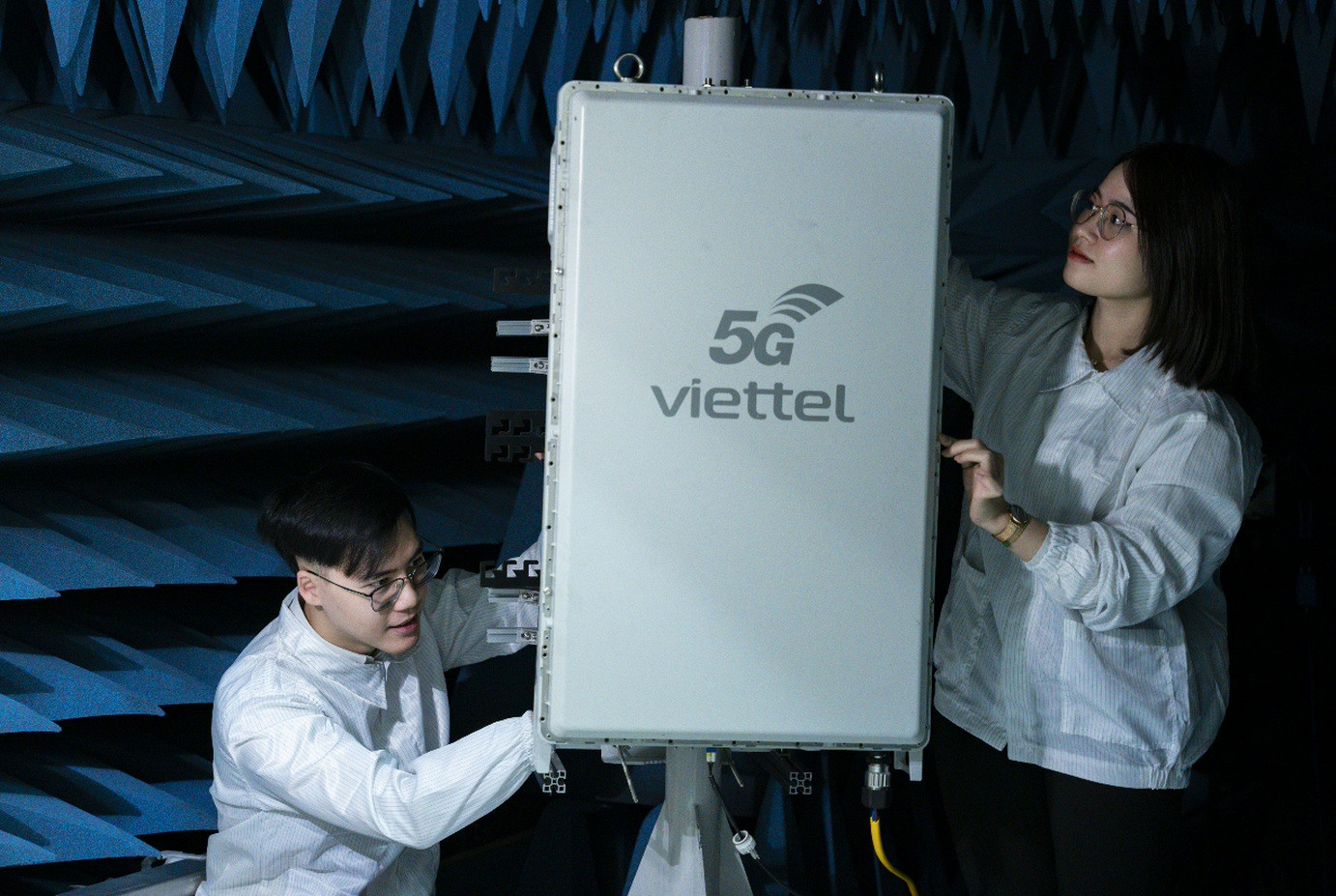
All large mobile network operators have begun providing 5G services.
The participants at a recent workshop on commercializing 5G and applying 5G in smart industries all agreed that Vietnam is entering the era of broadband and IoT. 5G application will help Vietnam catch up with the world in the fields of industrial production, seaport, mining and smart transport.
Regarding IoT (Internet of Things) application in industry, deputy director of the Authority of Telecommunications (AOS) Le Phong Nha noted that each telco, including MobiFone, VinaPhone and Viettel, is seeking its market, and based on their infrastructure, exploring opportunities to provide services while targeting niche markets and learning international experience to apply in Vietnam.
From the perspective of a state management agency, AOS has made suggestions for telcos.
First, Nha pointed out that 5G network can be individualized for each customer, so businesses need to strengthen relationships not only with telecom regulatory bodies but also with all state management agencies in other sectors.
This approach will allow telcos understand policies and market demands to develop service solutions that fit the market’s tastes.
For instance, Nha highlighted the need to change the approach for expanding or upgrading production lines in Industrial Zones when introducing 5G technology.
This requires closed collaboration between firms providing connectivity service (telecoms) and solution and software firms.
“We must collaborate to develop and tap niche markets. Niche markets are a new concept for telcos today,” Nha noted.
Second, AOT hopes that telecom companies will better understand policies for industries and real market needs, as well as solve problems and provide training in new professions for workers who become redundant once automation is applied.
This approach can contribute to preventing Vietnam from falling into the middle-income trap.
“If we only offer better solutions without addressing the underlying issue of labor redundancy, many businesses will waver between applying or not applying technologies,” Nha warned.
Asked what telcos should do to cut costs when developing 5G networks, Nha suggested that telecoms should share existing infrastructure to cut expenses.
Vietnam plans to cease 3G technology by 2029. If businesses believe that 3G has fulfilled its role, they can accelerate the cessation process. If so, operating and investment costs will drop, and they will have more resources for next-generation networks, including 5G and 6G.
Collaboration and cooperation were also the hot topics of discussion at the workshop. Nguyen Quoc Khanh, Deputy Technology Director of VNPT Group, announced that VNPT and MobiFone have signed a strategic agreement to share infrastructure. Both have carried out experiments related to 4G, and 5G in the time to come.
The agreement is expected to help expand their coverage sphere by 50 percent. In phase 1, VNPT will deploy at least 3,000 sites and will quickly expand in the next phase.
He noted that when applying any emerging technologies, such as 5G, IoT and AI, the expanding cooperation among parties, including telcos, tech firms and supervision firms, always plays a very important role.
Meanwhile, Nguyen Tuan Huy, head of MobiFone’s digital transformation division, said 5G should primarily serve the government, organizations, and enterprises.
Acknowledging a shortage of specialists in digital transformation, he expressed MobiFone's desire to collaborate with businesses in 5G ecosystems to create a common environment and together provide comprehensive solutions to B2B customers.
Former Deputy Minister of Information and Communications Le Nam Thang suggested that when deploying 6G, businesses should design solution packages, not just cover the networks but also network equipment; and provide apps, solutions and training service as well.
“This is a great opportunity for traditional telecom carriers to turn into technology firms,” Thang said.
Mobile network operators are running a race to commercialize 5G. Viettel reported that about 10 million Viettel subscribers nationwide have 5G terminal devices out of 66 million service users.
As for business clients, Viettel prioritizes businesses which have demand for 5G such as IZs, seaports and airports. Viettel is working with 100 enterprises on carrying out experiments and designing digital solutions for enterprises.
MobiFone’s Nguyen Tuan Huy said the telco has received the license for using C3 waveband and is following required procedures to commercialize 5G.
Trong Dat